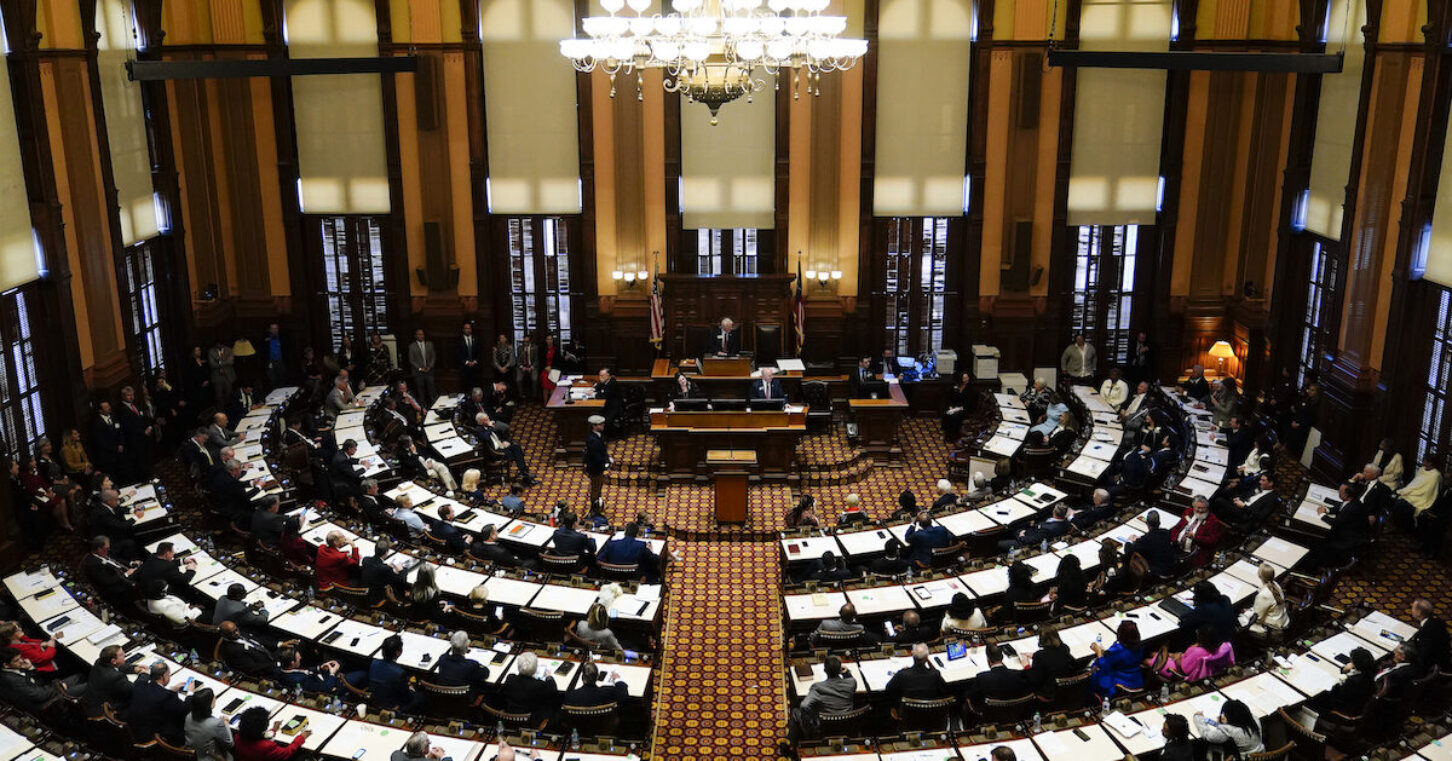
For the first time since the 2021 legislative session, Georgia lawmakers won’t rush to gavel out on their first day and travel to the national championship game. Unless, that is, there’s a secret cabal of Michigan alums under the Gold Dome pulling the strings.
2024 is an election year, and every state legislative seat will be on the ballot. Traditionally, this means a short session as legislators wish to adjourn early and begin raising money for their re-election campaigns. A handful of members will also have to introduce themselves to new constituents after the recent special session, which was convened to redraw the congressional and state legislative districts in accordance with a U.S. District Court’s ruling.
An atypically early Easter in March this year adds another wrinkle to the calendar and also might influence an early adjournment.
But alas, the business of the state beckons.
Georgia has witnessed unprecedented growth and, despite the economic warning signs, what will the state do with its historic revenues? In December, Gov. Brian Kemp and legislative leaders announced their intention to expedite lowering the personal income tax rate. This would lower the rate for Tax Year 2024 to 5.39%, rather than the 5.49%rate that was set to take effect after legislation passed in 2022.
This announcement came on the heels of a Joint Tax Credit Review Panel in which legislators in both chambers examined the efficacy of the state’s current tax credit programs and economic development incentives, expenditures which could be slashed to offset any lowering of income tax revenues.
But will a lower tax rate come to fruition considering other short and long-term political goals that require appropriating state funds?
The highest-profile piece of education legislation — barring movement on a proposal to provide a stipend which would allow teachers to carry firearms — should be the proposal to create Promise Scholarship Accounts for Georgia students.
Related: North Carolina is the latest neighboring state to expand school choice options
In 2023, legislation passed the Senate that would have allowed students in Georgia’s lowest-performing K12 schools to receive a $6,500 stipend towards private schools, homeschooling materials or other approved educational expenses. Despite public support from the Governor and Speaker of the House, it fell five votes short in the House after 16 Republicans (including an astonishing nine committee chairmen) voted no on the final day of the legislative session.
At least one high-profile piece of healthcare legislation is on the agenda, as lawmakers will decide whether to significantly reform the state’s Certificate of Need (CON) laws that let bureaucrats – and industry incumbents – determine if new healthcare facilities or service lines are allowed to open.
While the Senate in 2023 advanced legislation that would have removed CON laws for new rural hospitals, the House did not act on that bill – though it is still alive since this is the second year of a biennial legislative session. Since then, the Senate has indicated a willingness to go even further, calling for eliminating the CON requirement for nearly every healthcare service and facility.
Related: Senate Study Committee recommends full CON repeal
Meanwhile, the House has entertained pairing some form of Medicaid expansion with a CON rollback in this debate, leaving even the most experienced observers to wonder what will happen as this multitude of special interests and legislative wills collide.
In October, Kemp announced his intention to pursue tort reform, reining in lawsuits in the state named the No. 1 “judicial hellhole” by the American Tort Reform Foundation, during the 2024 legislative session. While specifics are few and far between to this point, even the narrowest attempt to reform has the potential to shut down legislative activity, especially given the other potentially contentious political debates that are likely to occur.
Lastly, the 2023 session ended with increasing discussions on who would emerge in the 2026 statewide races. The upcoming session will undoubtedly bring us even more political jockeying as we move closer to that date.